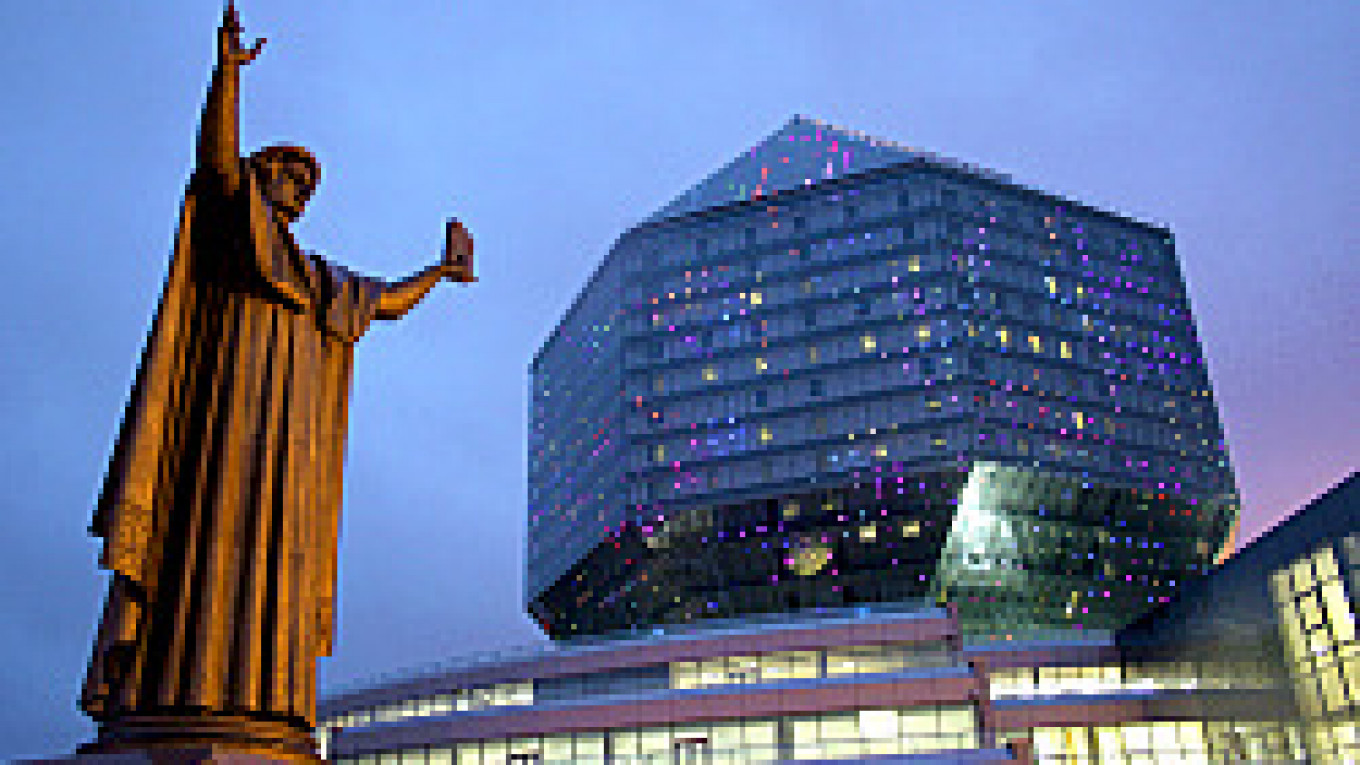Yet, even as outside investor interest is swelling, there continue to be solid obstacles to buying properties.
All land in Belarus is publicly owned -- even Belarussians who buy homes or commercial buildings usually receive only a 50-year lease on the land. And all transactions involving state property valued at more than the equivalent of $150,000 must be approved personally by President Alexander Lukashenko.
Sale prices are expressed in dollars but paid in Belarussian rubles; rents usually are expressed in euros.
Neither foreigners nor foreign legal entities are allowed to buy property, although it can be done indirectly through Belarussian companies. "Everyone has their own strategic plan to participate in projects in different sectors here," said Mikhail Gradovich, managing director of Colliers International Belarus.
In May, Colliers opened an office in Minsk, the first international real estate consultancy in the country. It focuses on commercial property sectors: retail, office, industrial and hotels.
Gradovich said customers generally can be divided into two groups: locals with access to land who are seeking investment to help fund development, and outsiders who are eager to buy properties but generally cannot.
Last year, he said, private investment funds, mostly from Europe, started to show interest in Belarus for the first time.
Despite the strong demand for new properties, Gradovich said, investment in construction projects is almost unheard of because Westerners are still very cautious about placing money in a country that will not grant them rights to land. Also, new commercial construction is generally of low quality. Only a small number of buildings would be considered class A by international standards.
Russians, who are used to operating in a similar environment, comprise most of the foreign investors in new construction. There is no official border between the two countries, so capital can be transferred from Russia into Belarus more easily than from anywhere else.
When Western buyers negotiate with potential local partners, Gradovich said, they are discouraged by the "sometimes strange" steps they need to take and often "quietly withdraw." The process of building is frustrating and extremely bureaucratic, he said, with high fees and lengthy permit processes required during every step of the construction process.
Residential properties in Minsk average about $2,000 per square meter, up from $1,000 two years ago, according to Realt.by, a Belarussian real estate Internet site. The prices vary slightly according to the number of rooms, with units with more rooms being slightly more expensive. Gradovich attributes the jump to fierce competition for insufficient housing supplies due to increasing incomes and buyers seeking an investment or better housing.
Most of Belarus was flattened during World War II, so residences today are tall apartment blocks built during the Stalin era; a similar style is used for about 80 percent of all new residential construction. Outside the cities, most people live in houses.
Kevin Smith, a part owner of Belarus Trade House, said the company was planning to enter the properties market for a very simple reason: "Price."
"Prices have been going up rapidly," said Smith, who also imports sparkling wine and crystal from Belarus to Britain. "Minsk is still fairly cheap compared to many other cities in the region."
By comparison, residential prices in Moscow average more than $6,000 per square meter, according to Evans Property Services, a real estate agency with offices in Moscow and New York. And in Riga, Latvia, they average $3,234 per square meter, according to Colliers.
"The country seems to be opening up much more to the U.S. and Europe over the last year than they have done previously," Smith said, attributing the change to Belarus seeking new partners following a dispute with Russia over oil deliveries in January 2007.
Smith said he was looking at several different approaches, including bringing in big investors on major property development projects on one end, and smaller deals in residential properties.
Even with supplies short and prices growing in all property sectors, Gradovich said the office market was the most promising because of the high and growing demand.
Retail real estate prices are increasing by an average of 25 to 30 percent per year, according to Colliers.
For warehouse and industrial space, the demand has doubled while supply remained low, Colliers said. For example, the prices of unheated warehouses in Minsk rose by 60 to 80 percent over the last year.
There are no international hotel operators in Belarus and the majority of all hotels are state-owned.
Smith said prosperity was growing and the market could eventually become as hot as in the Baltic states next door. After mortgage lending increased in Latvia, Smith said, property prices took off. "In Belarus, it's not possible for Belarussians to borrow, but for foreigners to buy, that's starting to move," he said.
A Message from The Moscow Times:
Dear readers,
We are facing unprecedented challenges. Russia's Prosecutor General's Office has designated The Moscow Times as an "undesirable" organization, criminalizing our work and putting our staff at risk of prosecution. This follows our earlier unjust labeling as a "foreign agent."
These actions are direct attempts to silence independent journalism in Russia. The authorities claim our work "discredits the decisions of the Russian leadership." We see things differently: we strive to provide accurate, unbiased reporting on Russia.
We, the journalists of The Moscow Times, refuse to be silenced. But to continue our work, we need your help.
Your support, no matter how small, makes a world of difference. If you can, please support us monthly starting from just $2. It's quick to set up, and every contribution makes a significant impact.
By supporting The Moscow Times, you're defending open, independent journalism in the face of repression. Thank you for standing with us.
Remind me later.


